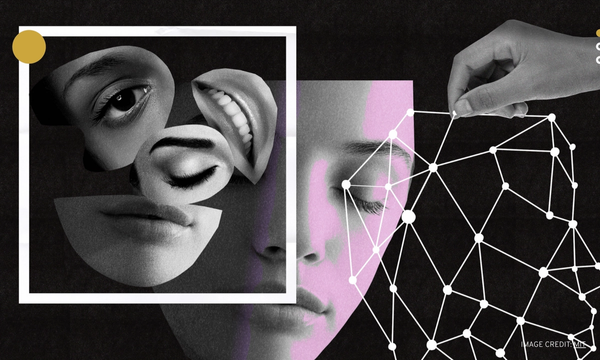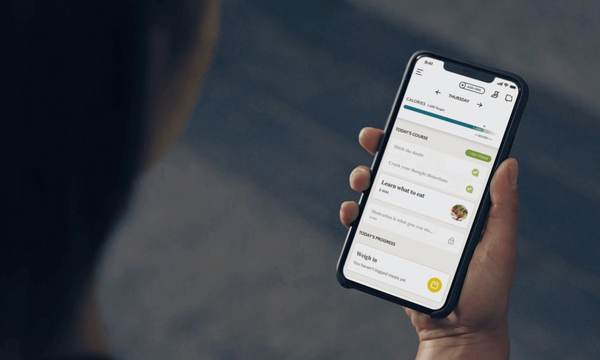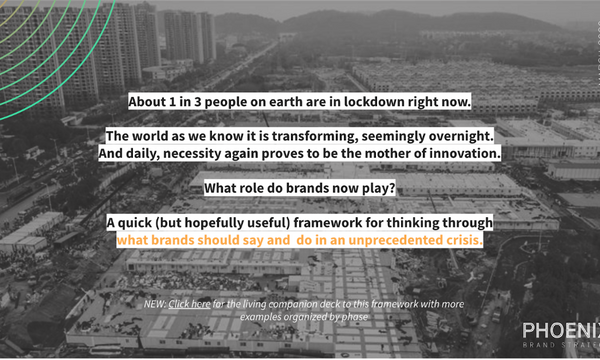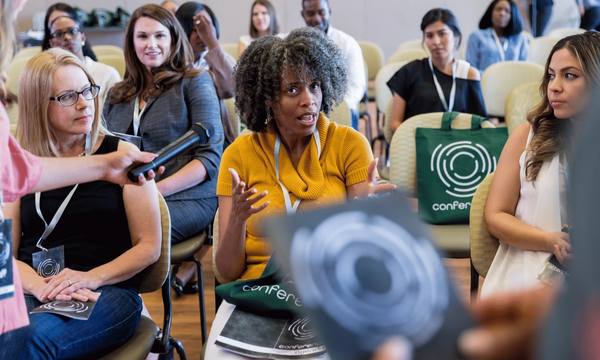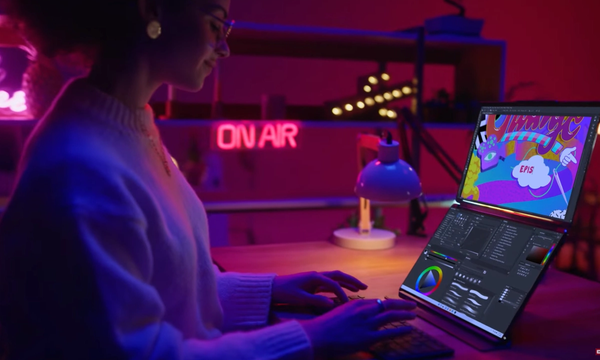Decoding the Future of Messaging
Defining a roadmap for WhatApp’s groups products, mapped to the future of messaging in US, UK, India, Brazil & APAC.
Signals, trends & innovation research
Cultural & Ethnographic Research
Roadmapping, insight & workshops
Groups usage was declining. Why? And how to keep it relevant?
The Challenge
The brand and product teams at WhatsApp engaged us on a piece of cultural research and insights work to help make sense of what trends would most impact the future of messaging, and how we could shape Groups to leverage the opportunities, ahead of their annual product planning cycle.
Messaging’s role in our lives shifted radically during Covid. WhatsApp wanted to understand how it changed, and which major trends would impact the future, but importantly, what it meant to be a champion of privacy now and what that meant for Groups features. Against an environment of lower trust, evolving privacy views, and the fluid nature of platform use, we needed to understand how WhatsApp groups could be better positioned to serve younger generations who were increasingly leaving for what they perceived as richer pastures for communicating with each other.
Why, for example, were WhatsApp Groups becoming the bedrock of community building during the pandemic, but simultaneously being eschewed by younger teens in favor of ongoing dialogue on Twitch, Roblox or Discord?
The 'How'
From spending time shopping with a nine year old in Roblox to moderating a slackathon with PHD candidates studying Black Twitter and the role of DMs in group digital identity, we went broad and deep to get robust signals on where digital messaging is headed, and what that meant for positioning in the messaging landscape in the future.
As part of this, we interpreted signals from India, Brazil, the US, UK and broader APAC region to weave together a new narrative around what privacy could mean in a modern, global context
A set of trend shifts were then mapped on a dominant to emergent scale, with watch-outs and nuance per market.
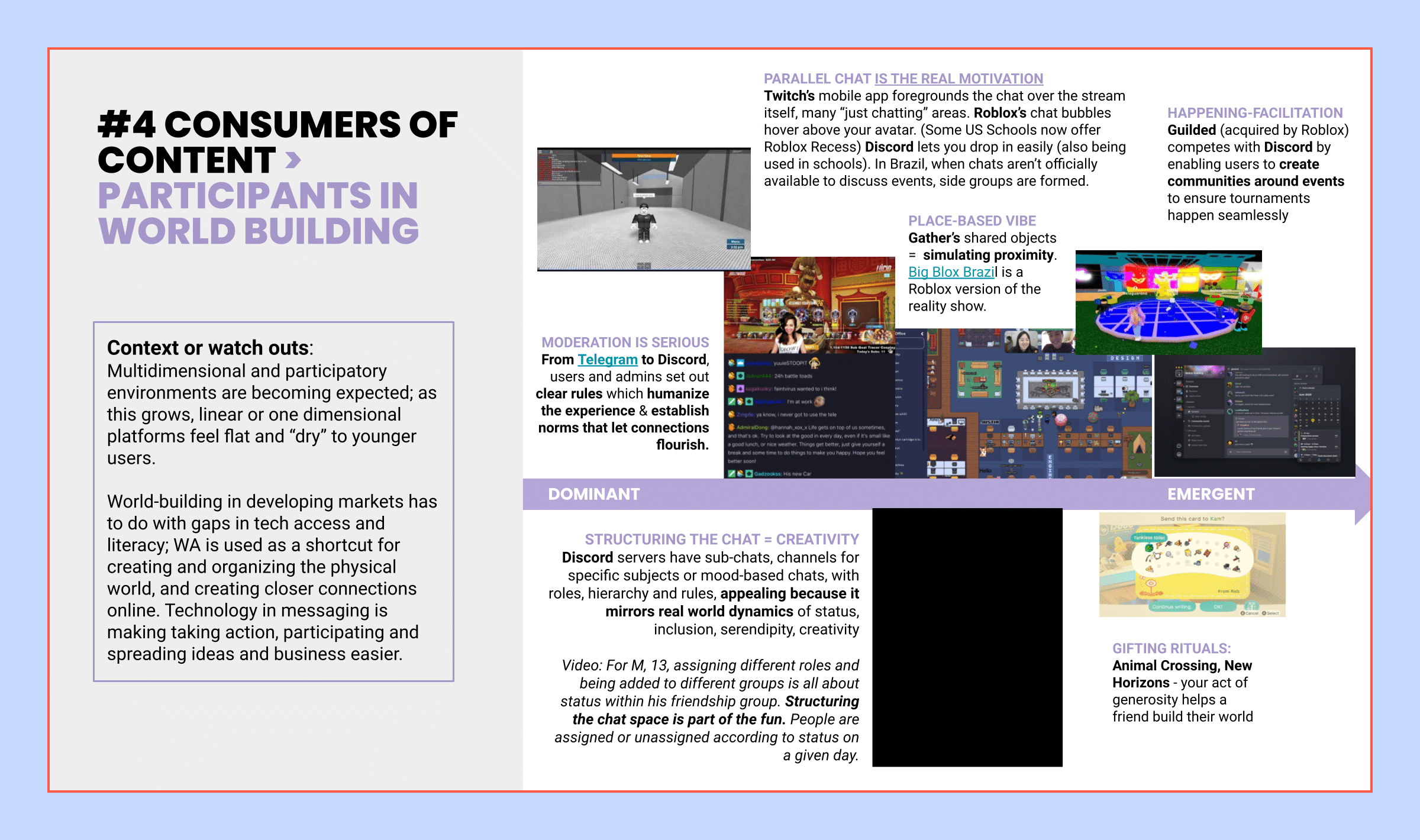
For example, we explored the holistic, game-informed shift to world-building and how this has pervaded how brands need to engage with Gen Z in every industry and aspect. We looked at factors from the new dynamics of moderation and role-creation in spaces, to how rituals are changing in a world-building context, to how metaverses and other “world” spaces like Animal Crossing are now serving as landscapes for everything from PTSD treatment to couples counseling.
We also explored the interesting shift from replicating events and “solving FOMO” (think, zoom weddings in India, high school reunions in the US, WhatsApp prayer groups in Brazil), to thinking beyond replication and into what creates actual intimacy in messaging spaces.
Bringing in examples from all over that started to let people simply figure out how to be together, such as Bumble’s use of anchors for unscripted moments or Telegrams quizzes, we started to lay a groundwork for what types of nudges, features and tools needed to be added for more intimacy to exist in Groups space. Features could work to reduce friction and awkwardness, for example, but brining in multi-sensory tech (a la Clubhouse’s ambient audio and larger group audio-only sessions) could even make experiences feel even richer and more embodied.
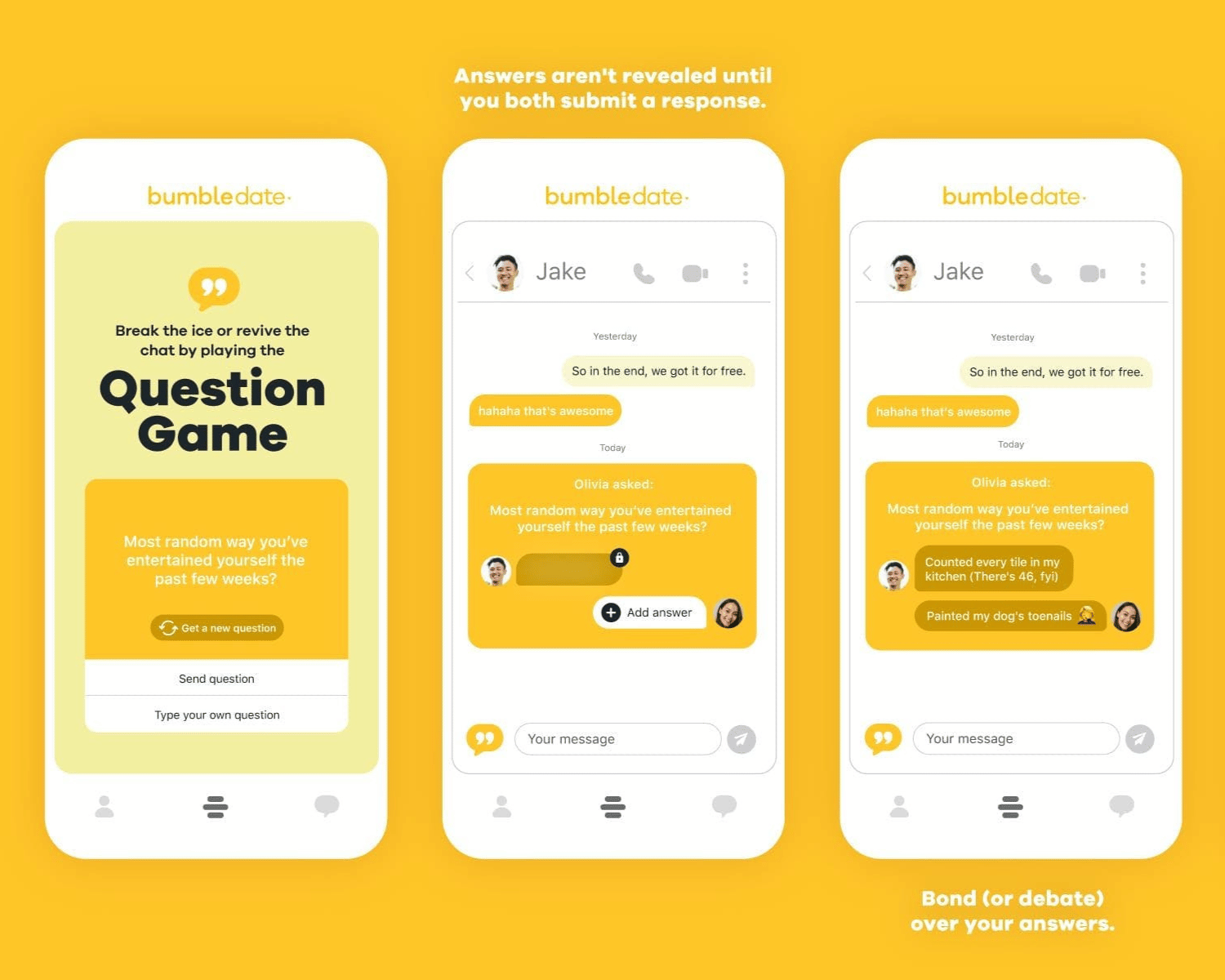
The Results
Signals informed a map of the messaging landscape, with identified privacy contexts in each region. Pushing into different territories on the map was a way for teams to understand the pros and cons of building on various trends, introducing features, and the product implications that would result.
In November 2022, WhatsApp shared a vision for a reimagined Groups offering, building on some of its equity as a community-organizing backbone, but bringing scale - and also incorporating features to further reduce friction, create intimacy and embodiment in a uniquely WhatsApp way.
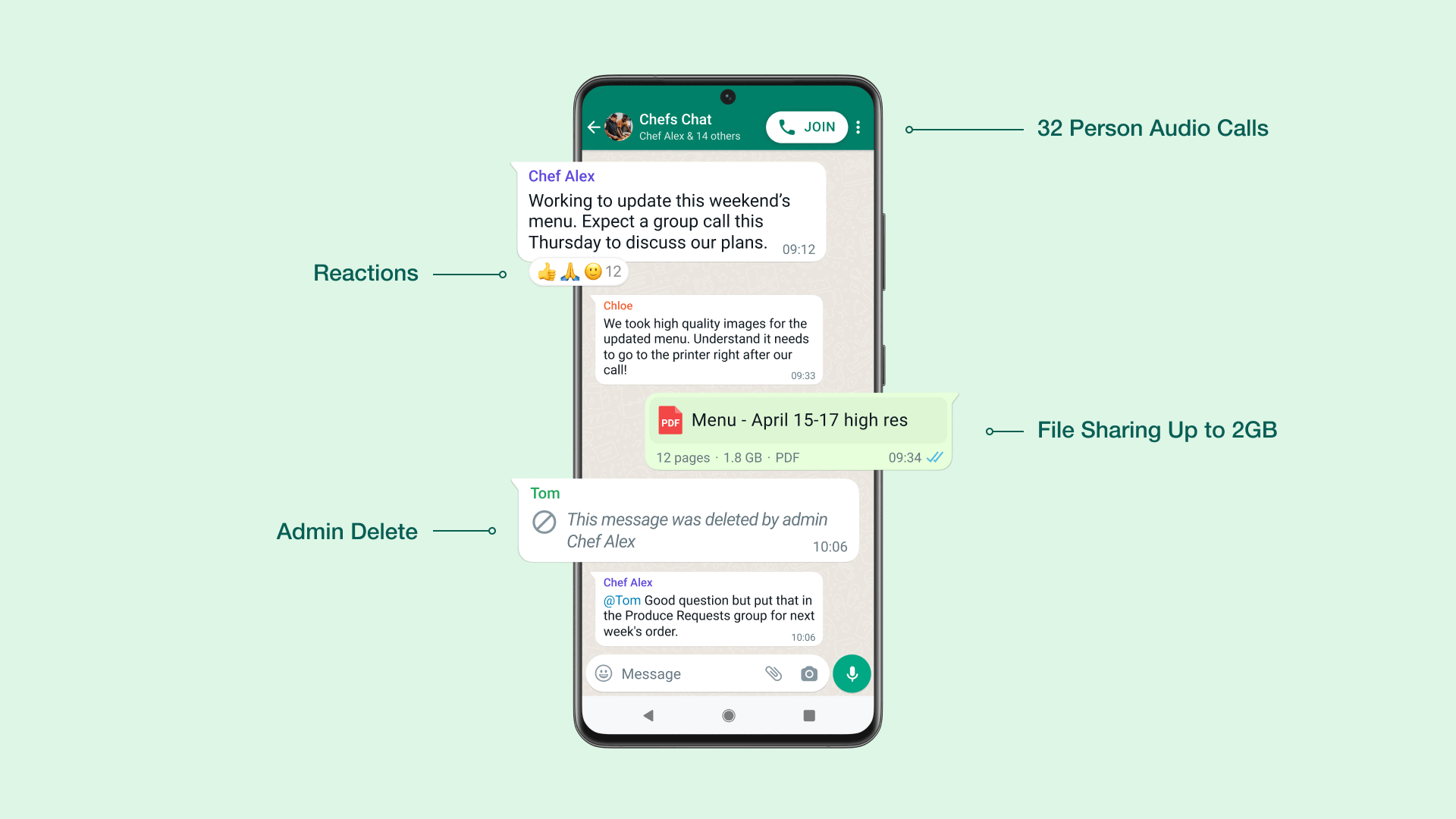
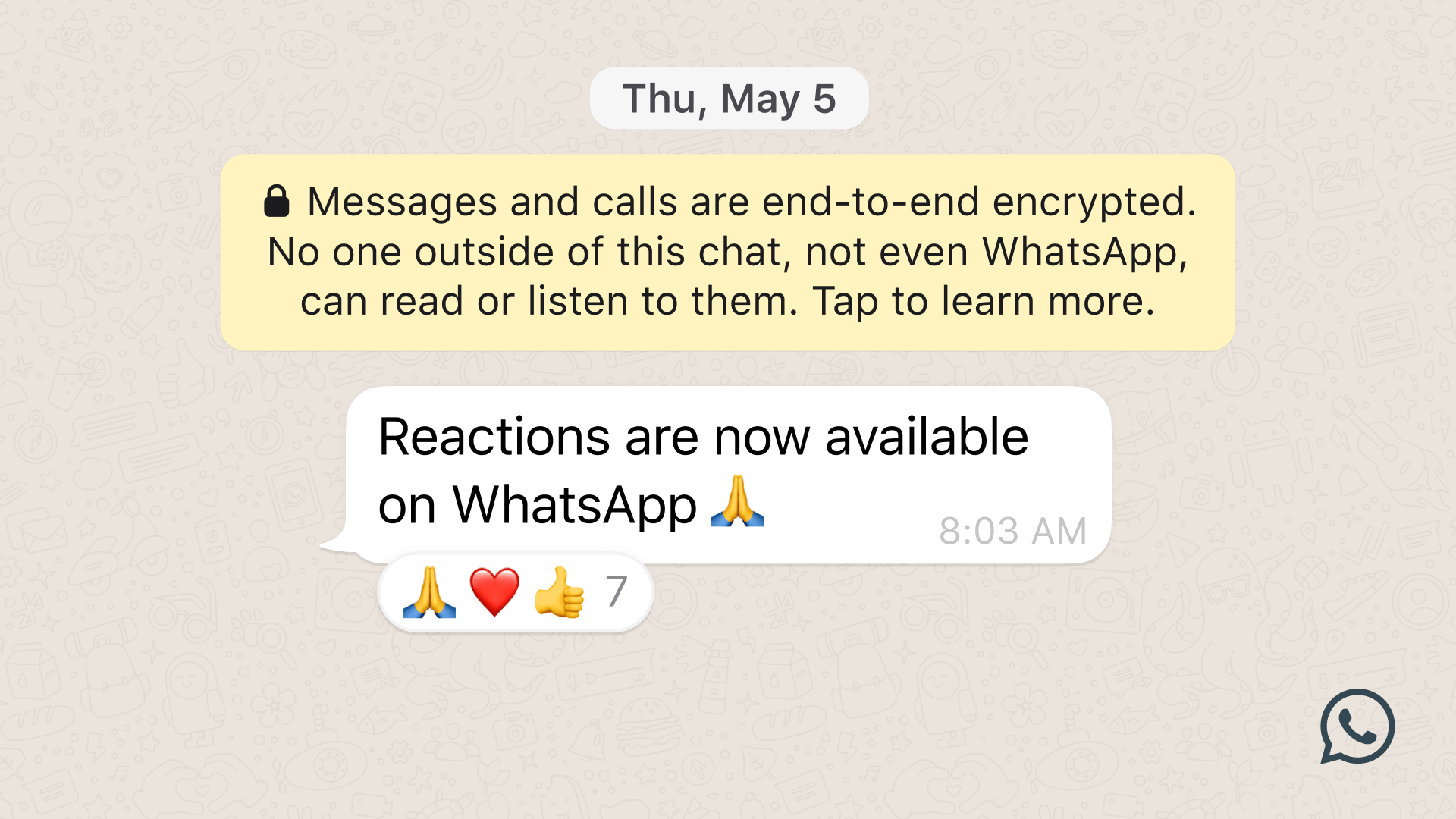
The Phoenix team has been both valuable and a pleasure to partner with. Their research has provided thorough insights into user problems and needs, helping shape our product strategy and prioritization
- Rosie
PM, Noom, Inc.




